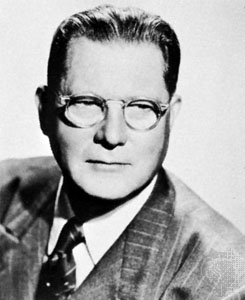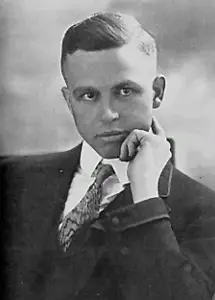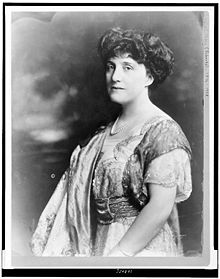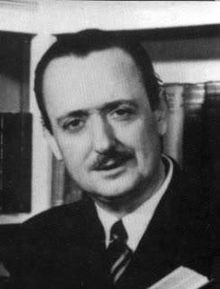I’m struggling to find questions for those authors who are among the living, partially because I am woefully behind in reading current mystery writers’ work. It does take a modicum of knowledge regarding a detective series, or suspense novel which one can only really get from spending time trundling across the internet for tidbits, or cracking open and reading through a book. What I do

have, is a ridiculous amount of dead authors books under my belt. It occurred to me that I have questions for many of those whose work lives on, long past their creators expiration dates. For example, Rex Stout. The man created an iconic character out of…? Did Mr. Stout dream up Nero Wolfe, the agoraphobic, beer swilling, orchid loving, gourmand after a indigestible meal? His cohort, Archie Godwin is more typical of the genre, while Wolfe is decidedly a unique voice. Stout wrote other things before embarking on his best selling series. How and when did this inspiration hit him? I would think that a publisher being pitched the idea of Wolfe would have been skeptical at the very least. To Erle Stanley Gardner, the mastermind behind Perry Mason, I’d want to know why he couldn’t put pen to paper. He dictated his books to his, ‘secretary’.

Quotations because he eventually married that secretary, finally, after the wife passed on. I’d also like to know how much or little real law is used within the books. When reading a Gardner, I’m struck by how Mason either eludes laws, or just plain breaks them and gets away with it. If, as a former lawyer, Gardner’s writing what he knows, did he circumvent the law while practicing? Agatha Christie would need to account for the flatness of her characters, why they are so one dimensional they could all be alike except for title and profession. And why Belgian? Out of all the nationalities, why did she choose her detective to be from Belgium? Patricia Wentworth would be asked why her detective barely graces many of her books, and what inspired her to create a grandmotherly individual who is in fact, hard as nails, in Miss Silver? I’d inquire of Mary Roberts Rinehart, why her heroines were sooooo clueless. How could they live in such a fog of perplexity? Why did they bungle along, going places they shouldn’t, curious about things they had no business with? And why the hell didn’t they know!!?? I’d really like to learn why authors such as Dorothy L. Sayers. Ngaio Marsh, S. S. Van Dine, and many others had detective protagonists from the upper crust. Sayers’ Peter Whimsey wears a monocle and wants for naught, Marsh’s Roderick Allyn is of the titled class who lowers himself to become a police detective, Philo

Vance is the American equivalent of the other two. I’d love to understand the mind of John Dickson Carr and his obsession with locked rooms. So many of his works are set in this unlikely way, and he finds the most outlandish tricks of explaining how the murder was committed that it stretches credulity, just a tad. Dashiell Hammett need only answer one major point. Why did he stop writing? Raymond Chandler is a contradictory fellow in that he writes of the mean streets, while wearing white gloves. I’ve read many who blame his older wife for whatever problems they had with Chandler’s writing–I’d like to know from the horse’s mouth if this kind of negativity towards his wife and marriage affected him in any way. A fairly rude question of Carolyn Wells–how do you manage to write such appallingly tedious

boring books? Her Detective Fleming titles could lull a meth addict to sleep. Of the Little sisters, Constance and Gwyneth, I’d love to emulate the writing technique of doing it all from bed! One wrote the outline, the other the story, and they corresponded–while comfortably under the covers. Ellery Queen–of the writing duo of Lee and Dannay–first, I’d chastise them for perpetrating fraud on the reader by essentially doing a James Patterson–having other people writing under their name. That is not kosher. Sure, your name was a pseudonym, but we as readers, expected a certain voice under that name, not a series of bad and worse ones as time went on. The question would be–as writing partners, any huge fisticuffs when it came to compromising on a plot? For women authors in a man’s world–Dorothy B. Hughes, Helen McCloy, Helen Reilly, were they paid less money per book than their male counterparts, despite perhaps better sales? And how difficult was it to be published with a little harder boiled work than the more cosy styles of Christie et al? For all authors of their time–did the publishing world expect them to sell their own works as they do of today’s writers? Were they forced on signing tours? Or were

they allowed to do what they did best–write, with the publisher responsible for publicizing and pushing sales? And my most curious of questions–as mystery, crime fiction, suspense, whatever label stuck on them–writers—were they respected? Respected as the giants they became for those who read you now? Or was what they did just another job, something that brought in enough money to live on, and that was that–if, naturally, writing did indeed support them. Did it? If so, that is probably the most striking difference between alive and dead authors. Few with similar styles to those I’ve mentioned can honestly claim their writing supports them financially. Send any answers to the dead letter office.

Diane,
If my memory is correct, Christie based her character of Poirot on a little man she saw. He triggered an interest in her to design a character based on him. The first name she thought of for her character was Hercules, but decided it didn’t work well, and played with name. Then she wondered what country he could be from based on the name and settled on Belgium (there is more to this story, but I can’t remember all the facts.)
I am currently reading one of her books of short stories with two other characters: Mr. Parker Pyne and Harley Quin (Who knew? We never hear of these two.)
I know she is not a favorite writer of yours, but I really enjoy the Parker Pyne stories. Mr. Pyne advertises in the newspaper: Are you unhappy? Call Mr. Parker Pyne. I find the stories delightful in his ingenious ways of figuring out what is triggering his client’s unhappiness and how he uses his co-workers to try to lift the sorrow. Mostly, he is successful, sometimes he’s not.
I know this is going to the dead letter office!
Donna B.
LOL. I never heard of those short stories, they sound intriguing. I can’t deny her popularity, or ingenuity of plot, that’s for sure. I just wish she had a little more in depth characters. But who knows, it may have killed interest for her fans. Do you like the Patricia Wentworth novels? I was surprised to find I really enjoy them. And I like many of Margery Allingham, and almost all of Ngaio Marsh. Scandalously, I am not enamored of Dorothy L. Don’t tell anyone!
I’m going to try some of the three authors you recommend. I agree about Dorothy L–she’s not high on my list either. I loved reading Dorothy Gilman’s Mrs. Pollifax series. I also love the humorous characters in M.C. Beaton’s books: Agatha Raisin and Hamish MacBeth. I subscribe to the Mystery Scene magazine and recently received a little spiral book: Organizing Crime Classics. It is alphabetical by author, and lists all the titles in a series. Each list has a little box for checking off books read. It’s quite helpful!
Donna B.